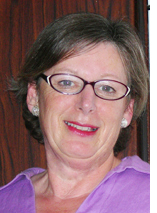By Judy Lash Balint

JERUSALEM — A few days ago, within a week of Yom Hashoah, Holocaust Remembrance Day, my mother’s youngest brother passed away. His passing made me reflect on the long tentacles of the Shoah that leaves its mark on lives until today.
Isi was the youngest of five children, born in 1926 to Avraham and Ida Ehrenreich, who had arrived in Leipzig a year earlier with a wave of Jews from Galicia.
Kristallnacht occurred a few weeks after Isi’s bar-mitzvah that took place in the shul where my grandfather was the shammes. Sometime in the next year, Isi was sent with his older brother Moi, on the Kindertransport that saved thousands of Jewish children by sending them to England. My uncles, raised in an observant Jewish home, were sent to live with non-Jewish families in the west of England and never saw their parents again.
To this day, I have never heard a word about their experiences or their memories. No childhood reminiscences; no memories of their parents; no stories about their teenage years as new Englishmen. Nothing. A complete void. As if life only started when they came to London after the war and managed to set themselves up in business together selling shoes.
Isi never married and never became part of the Jewish community. He and Moi changed their last name, signifying the end of that particular line of the Ehrenreich family. My mother insisted they join us every year for Seder or in the sukkah but that was the extent of their Jewish activity.
As a child growing up in a small English town that had offered refuge for my parents in their flight from the Nazis, I was acutely aware of many differences between my own family and those of my friends.
The absence of grandparents, all of whom perished in the camps; the preoccupation with events on ’the Continent’; the energy spent recreating a semblance of the Jewish life they had left behind; the effort to try and assimilate into the strange ways of British Jewry; the struggle to get rid of accents on the outside and the relief of falling back into German at home and with friends–all added up to that classic Jewish rootlessness and the feeling of being tossed about on the waves of history.
None were more rootless or restless than Isi, who retired from the shoe business in the early 1980s and took himself off to a seaside town in Thailand, far from Europe and its memories.
He entered the world in the 1920s as the beloved youngest child of a large observant Polish Jewish family. He died in another century alone in a Thai hospital.
One more victim of the Holocaust whom I’ll be mourning when the siren brings Israel to a halt at 10 a.m.on Yom Hashoah 2012. (Thursday April 19)
Yehi zichro baruch.
*
Balint is a freelance writer based in Jerusalem. She may be contacted at judy.balint@sdjewishworld.com